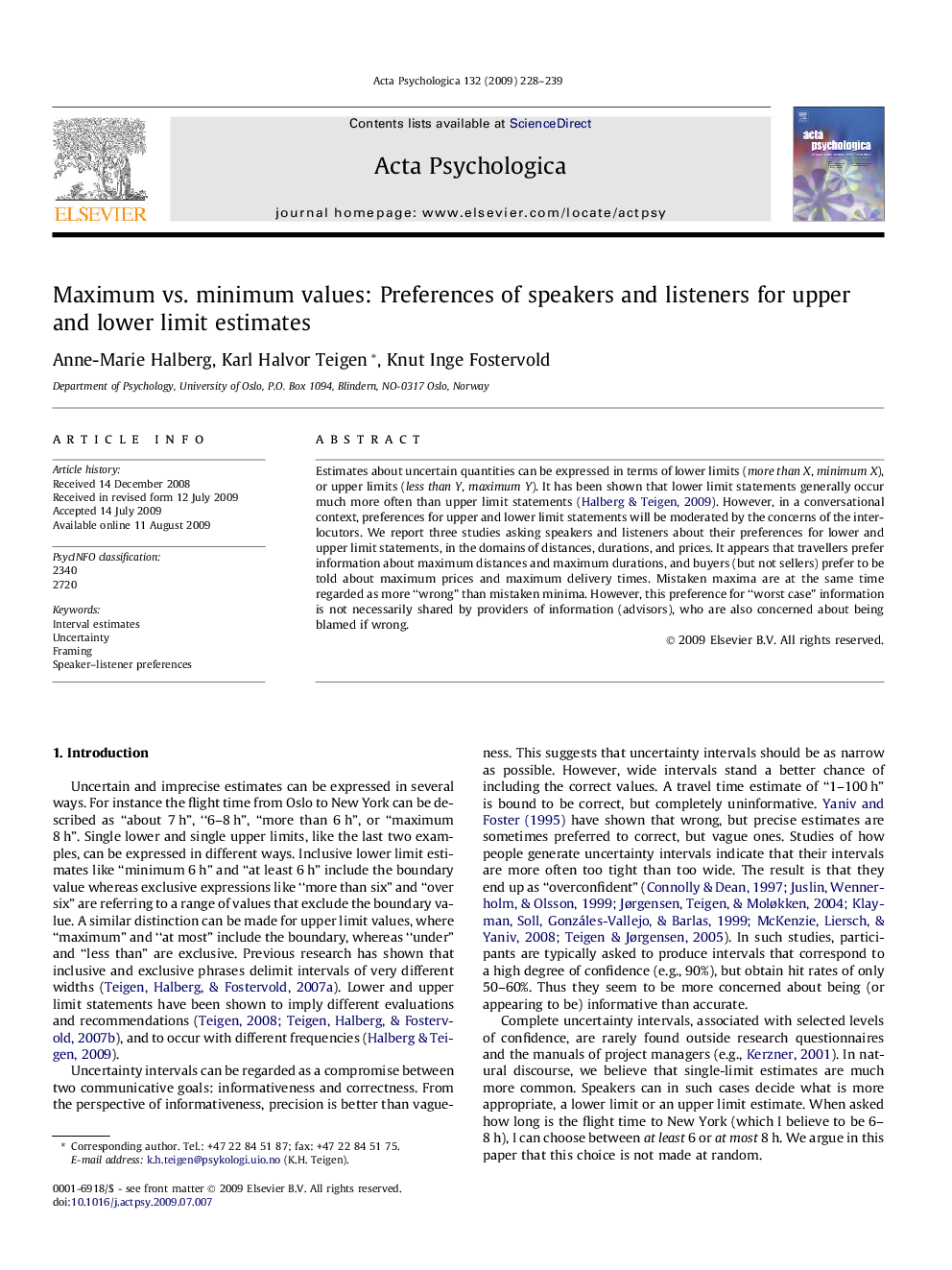| Article ID | Journal | Published Year | Pages | File Type |
|---|---|---|---|---|
| 920288 | Acta Psychologica | 2009 | 12 Pages |
Estimates about uncertain quantities can be expressed in terms of lower limits (more than X, minimum X), or upper limits (less than Y, maximum Y). It has been shown that lower limit statements generally occur much more often than upper limit statements ( Halberg & Teigen, 2009). However, in a conversational context, preferences for upper and lower limit statements will be moderated by the concerns of the interlocutors. We report three studies asking speakers and listeners about their preferences for lower and upper limit statements, in the domains of distances, durations, and prices. It appears that travellers prefer information about maximum distances and maximum durations, and buyers (but not sellers) prefer to be told about maximum prices and maximum delivery times. Mistaken maxima are at the same time regarded as more “wrong” than mistaken minima. However, this preference for “worst case” information is not necessarily shared by providers of information (advisors), who are also concerned about being blamed if wrong.
